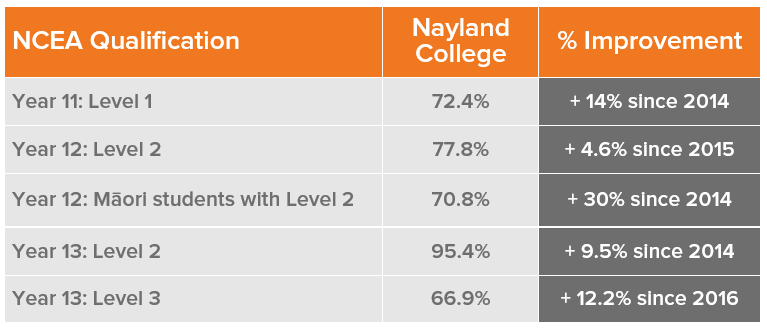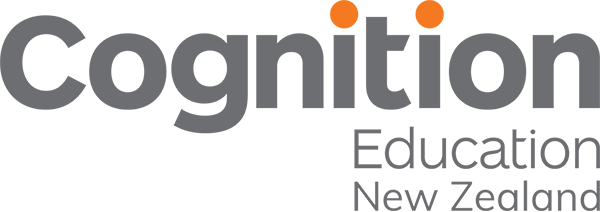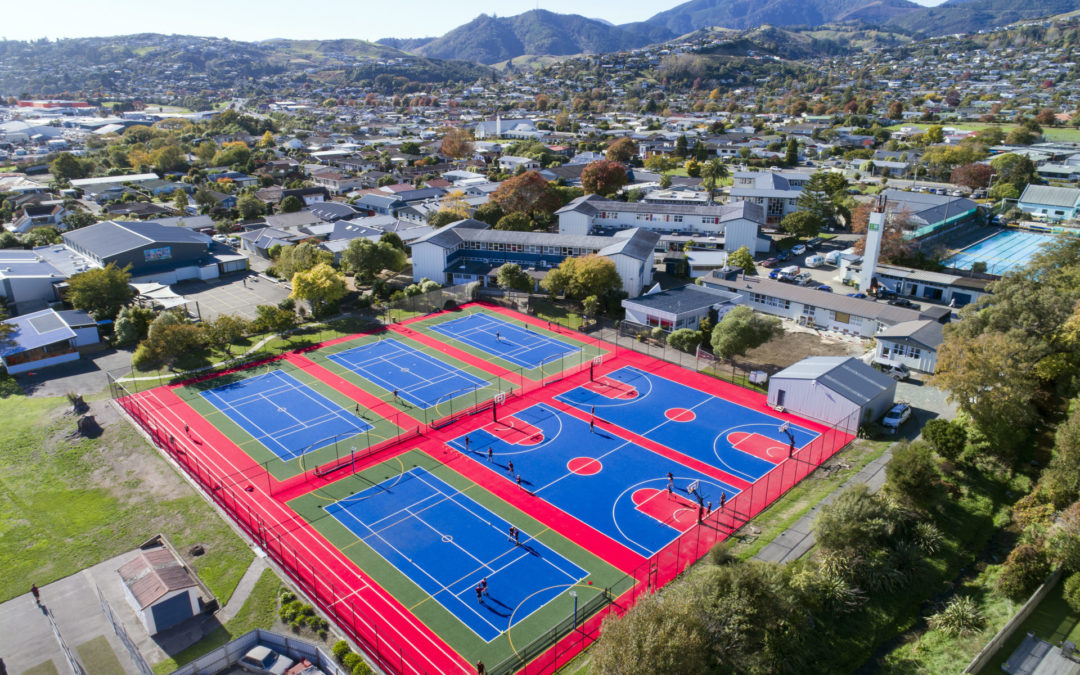Daniel Wilson has been the Principal at Nayland College since 2015. Two areas he identified as priorities for improvement were: (i) the achievement of Māori, and all students, and (ii) the relationships and transitions for students from across all the schools in the Kāhui Ako.
When the opportunity arose in 2017 for Nayland College to train in-school coaches to lead and sustain culturally responsive, relationships-based learning practices in the school, Daniel was enthusiastic to get involved.
Nayland College leadership and staff have been focused on improving many aspects of how the school works and the credit sits with them for the work they have done, and are doing. Cognition is proud to have played a part in their improvement journey.
Through working with Cognition’s team of trained Relationships First facilitators, Nayland College’s team of Impact Coaches have become leaders in the processes and practices found to be effective in improving the learning and achievement of students. The Relationships First programme, developed in collaboration with educational experts such as Emeritus Professor Russell Bishop, supports educators to build effective relationships with marginalized students and to use culturally-responsive pedagogies to develop students’ as leaders of their own learning.
Measuring the Impact
The impact has been substantial. In the Relationships First framework, there are 5 key areas that are monitored to track the impact of professional learning.
The 5 key impact areas are;
Voices
How have the voices of students, whānau, teachers and leaders shifted over the timeframe of the PLD?
Attendance
Has there been improvement in attendance?
Engagement
How well are students engaging with their learning and school?
Retention
How is this tracking?
Achievement
What has been the impact on achievement?
Nayland College has found improvement across the board in all these areas, particularly for Māori and other priority learners. Here’s just a summary of some of the key shifts that have occurred over recent years and to which Cognition Education’s programme has contributed.
Voices
From 2017 to 2018, there was a positive shift in the language and explanations teachers used to talk about the reasons for students’ success or lack of success at school. In 2018, teachers were much less likely to attribute lack of success to the student and/or school structures and systems and, instead, to talk about the ways in which the teacher him/herself could influence that success in a positive way. In other words, teachers were much more ‘agentic’ or solutions focused in how they talked about student achievement.
Attendance
Average attendance rates have been steadily improving. In 2016, average attendance was 84.9%, In 2017, this rose to 89.0% and to 90.0% in 2018 [Appendix 1].
In addition, the school roll has also been on a positive upward trend since 2017 indicating the local community has much more confidence in the school than in the past [Appendix 2].
Engagement
The school has used a couple of methods to track student engagement in the school.
Me and My School Survey from NZCER. The scores from 2017 to 2019 have improved across a range of items in this survey. For example, in 2017, 88% of students surveyed said they felt proud of their school. In 2019, this had risen to 97%. In 2017, 83% said they felt safe at school and in 2019 this had risen by 10% to 93%. In 2017, 96% said they felt their family’s culture was respected by teachers – already a great score! And this improved further to 99% in 2019.
Māori success as Māori measures students learning Te Reo, whānau class numbers and students involved with kapa haka. All 3 of these criteria have increased since 2014 [Appendix 3].
Retention
There have also been positive shifts in retention. Modest but pleasing retention gains from Year 11-12 have occurred from 84% in 2015 to 90% in 2019. What’s really impressive, however, are the gains in Year 12-13 retention. In 2015, the retention rate from Year 12 – 13 was 65%. In 2019, this had risen a whopping 24% to 89% [Appendix 4].
That’s a huge shift in four years and suggests a lot of work has been done to support students across the school to succeed and to value what the school can offer them.
Achievement
Achievement in NCEA has also improved over a number of years and due to many different changes and initiatives employed by the school. Here’s a few stats we wanted to highlight referencing the 2018 NCEA official results [Appendix 5].
In 2018…
- 72.4% of Year 11 students achieved NCEA Level 1. An increase of 14% since 2014.
- 77.8% of Year 12 students achieved NCEA Level 2. An increase of 4.6% since 2015.
- 70.8% of Year 12 Māori students achieved NCEA Level 2. An increase of 30% since 2014.
- By end of Year 13 – 95.4% of students achieved NCEA Level 2. An increase of 9.5% since 2014.
- By end of Year 13 – 66.9% of students achieved NCEA Level 3. An increase of 12.2% since 2016.
“We focus on particular students and the learning impact that teachers are having on them, and how we can make it more powerful. By focusing on the experiences of their priority learners, the teachers know that collectively a transformation in teacher pedagogy will have an impact on all students within the class”
What’s next?
Nayland College has now moved into a period of consolidation, with continued reflection at all levels of the organisation becoming the key strategy moving forward. These reflection processes have already identified that the Nayland College communication systems need to evolve to meet the engagement challenges they have set themselves. This includes moving to real-time online feedback and feedforward processes for learners and their caregivers. Nayland College enjoy working with the Kāhui Ako colleagues and, increasingly, many changes implemented at the school are being shared and implemented across the community of learning. Nayland College believe that through the Kāhui Ako partnership, they can take their inquiry and reflection much further. The long-term learning and wellbeing of tamariki across the Stoke-Tahunanui community is a shared responsibility. Nayland College know that they are well positioned to continue to improve teacher pedagogy and raise expectations, progress and outcomes for their young people.
Appendix 1
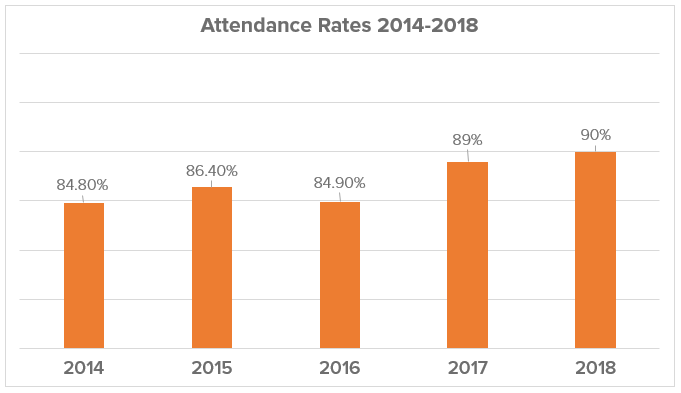
Appendix 2
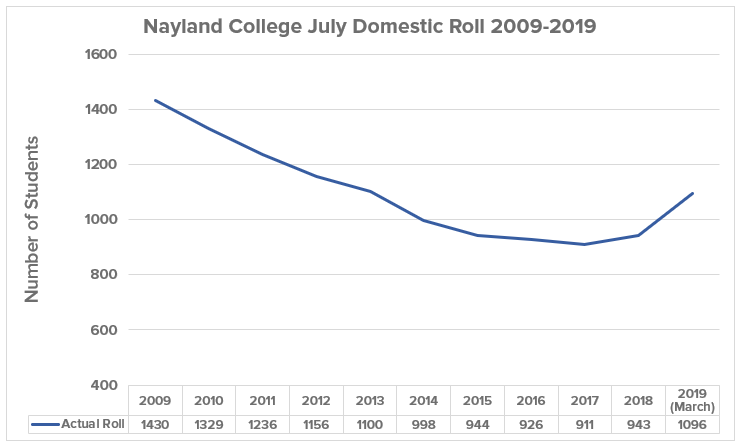
Appendix 3

Appendix 4
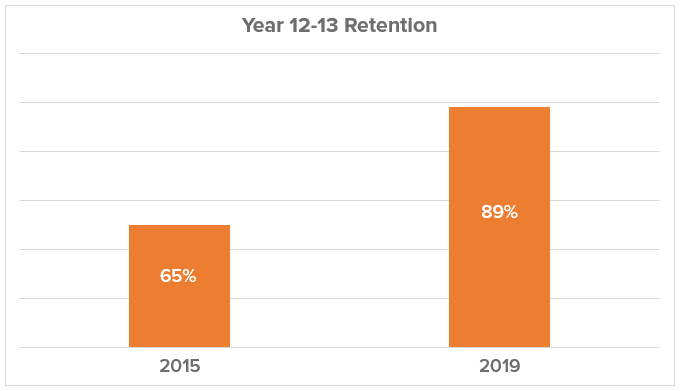
Appendix 5
